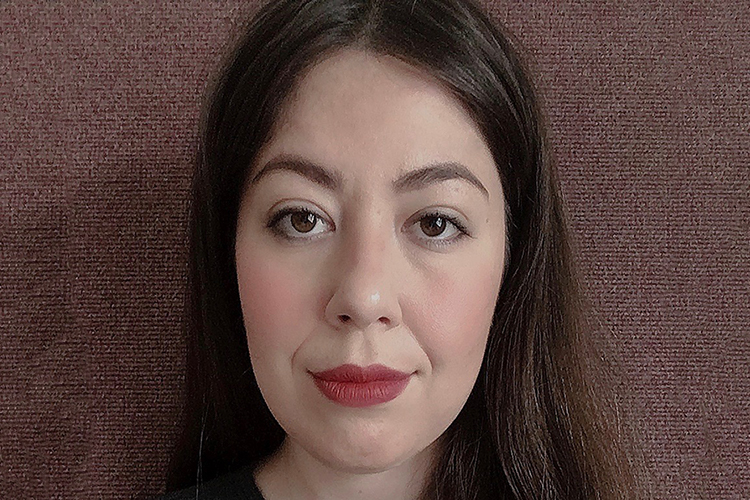Student testimonials
Fi Pollock, graduated 2017
What first attracted you to St Andrews?
It was partly the university’s reputation, but I also wanted to live in a university town with a campus feel. Living in an ancient, seaside town where I could walk to every class and see my friends sounded, and later was, idyllic! I was able to study the degree combination I wanted (Film Studies and International Relations) thanks to the range of combinations offered at St Andrews.
What was the best thing about studying Film Studies at St Andrews?
This question is hard to answer briefly – everything! The best aspect was the world class teaching. My lecturers and tutors were experts in the field, incredibly passionate about their work and a constant source of support. The class sizes were small and engaging. We were inspired academically to study areas of film that were unknown to us and supported professionally with career events and opportunities to make films ourselves. The Film Studies Department at St Andrews offers a first-rate education in film that I feel lucky to have received and prepared me for working in the film industry after graduation.
What piece of advice would you give to students thinking of applying for Film Studies?
I would strongly encourage those thinking of applying to indeed apply! This course is fantastic, covering multiple areas of film (documentary, film theory etc), and the department that teaches it is even better.
For new students in the Department, I would encourage you to dive in to the film community! Immerse yourself. Attend the departmental events and panels, industry speakers, society screenings, film competitions and socials! There is so much going on in St Andrews and meeting people will certainly lead to close friends and possibly to internships and jobs. An event hosted by the Film Studies Department opened the door to my first job in the film industry after graduation. I was invited to interview the director, Joe Russo, at the Byre Theatre when I was in third year and this connection led to amazing opportunities for me beyond graduation, like working on Avengers: Infinity War and Endgame. Studying for a degree I loved, having a great academic community in the Department and my work opportunities at Marvel were all possible thanks to the Film Studies Department at St Andrews
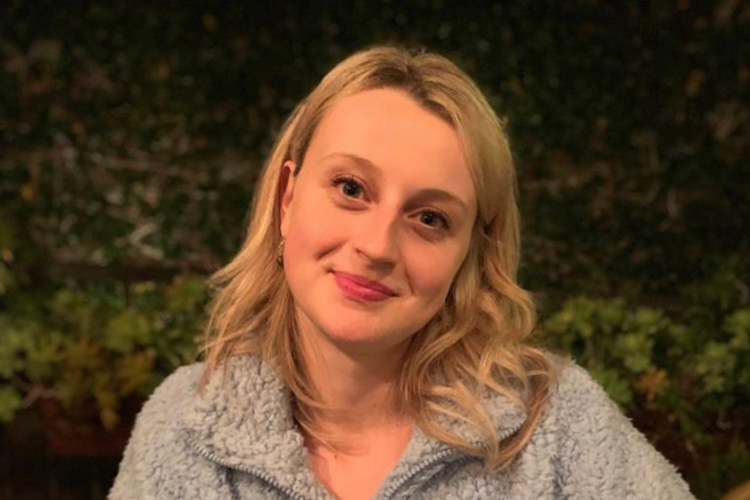
Lyndsay Townsend, graduated 2019
What first attracted you to St Andrews?
The Film Studies course at St. Andrews was perfect for me, providing the opportunity to study the rich history of film, while also addressing pressing, modern issues and debates. After visiting on the open day and discovering how beautiful the town is, everything fell into place!
What was the best thing about studying Film Studies at St Andrews?
For me, the best thing was the support from the Film Studies lecturers. Each member of staff is incredibly knowledgeable in their field, very friendly and always willing to help with any piece of work – I’ve never had a boring lecture, and the exciting variety of courses makes the Film Department such an amazing environment to study in.
What piece of advice would you give to new students?
My piece of advice would be: Don’t be afraid to be yourself and express your interests! For example, if there’s an area of film that you love, then pursue it – you’ll be surprised at how freely you can incorporate these interests into your own work. University is the perfect time to discover who you are, and never try to be anything that you’re not – your interests and passions will be valued, so never give up on them.
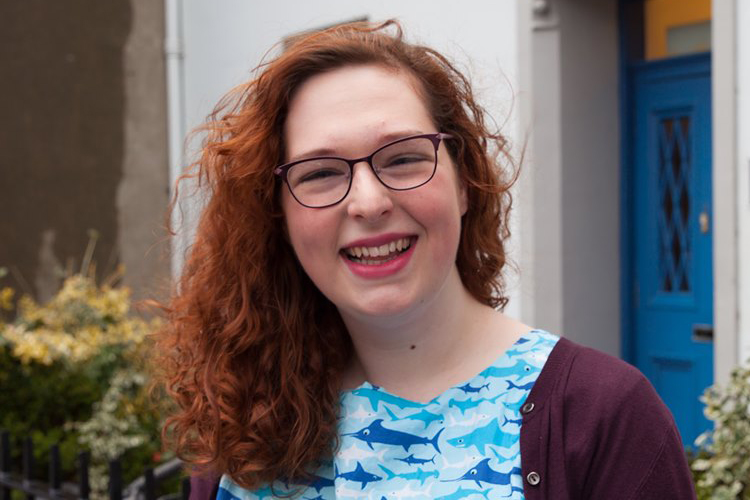
Shruti Narayanswamy, PhD student
Thesis
Women’s Experiences of Bombay Cinema, 1920s-1940s
How would you describe the project?
My thesis looks at women’s experiences of the Bombay film industry (1920s-1940s), through the facets of gendered cinemagoing, film publicity aimed at female audiences, and women’s labour.
What attracted you to St Andrews?
While I was drawn to the transnational research culture and expertise of the Film Studies, it was the funding opportunities that allowed me to pursue this research further.
How has the department helped you with your research or to develop your skills and knowledge?
I have benefitted immensely from the diverse and friendly research community in the department. The opportunity to work as a tutor has also helped me discover my passion for teaching.
What do you hope to do after the PhD?
I hope to develop a few projects, widen my publication portfolio and think about the next research idea that excites me!
What piece of advice would you give to someone thinking about doing a PhD in Film Studies?
Think beyond the thesis, and make the most of the wide range of professional and personal development opportunities available at St Andrews.
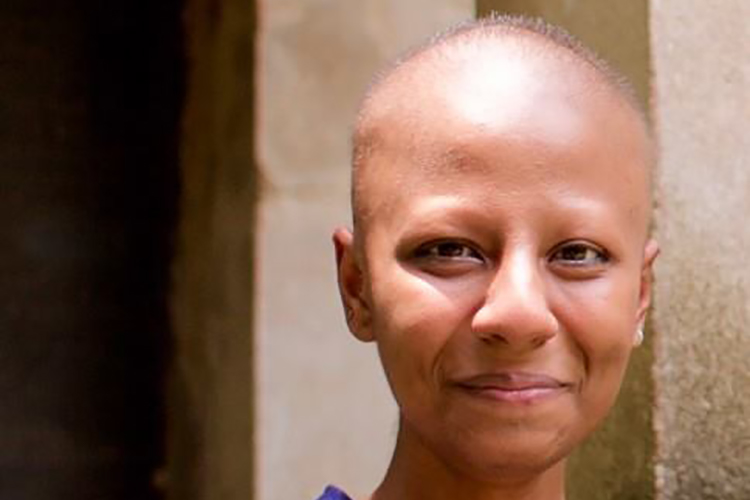
Maria Fernanda Miño, PhD student
Thesis
Ecuadorian Cinema for the 21st Century: Policy and Industry Implications (2006-2016)
How would you describe the project?
The project aims to analyse the impact of film policy in Ecuadorian Cinema, particularly after the turn of the century. It centres on the narratives, aesthetics, and production practices that emerged during this period, drawing relations between the film texts, the industry in which they came into being, and the overall political and social context.
What attracted you to St Andrews?
The interdisciplinary nature of the department and the availability of staff to provide extensive support throughout the application process.
How has the department helped you with your research or to develop your skills and knowledge?
My supervisory team has been able to push me academically while offering a safe and encouraging environment. More broadly, the department supports extracurricular activities to help develop the leadership and organisational skills of the PhD cohort, with initiatives such as conferences, workshops, retreats and study days.
What do you hope to do after the PhD?
I hope to be able to continue to research in film, while also nurturing my personal film practice.
What piece of advice would you give to someone thinking about doing a PhD in Film Studies?
Work on your research proposal and find a supervisory team that provides helpful and prompt feedback. Most importantly, develop strong ties to the community in St Andrews, even before you arrive. Doing a PhD requires self-discipline and a healthy state of mind, and engaging with the people, places and opportunities around you can enrich your overall PhD experience.
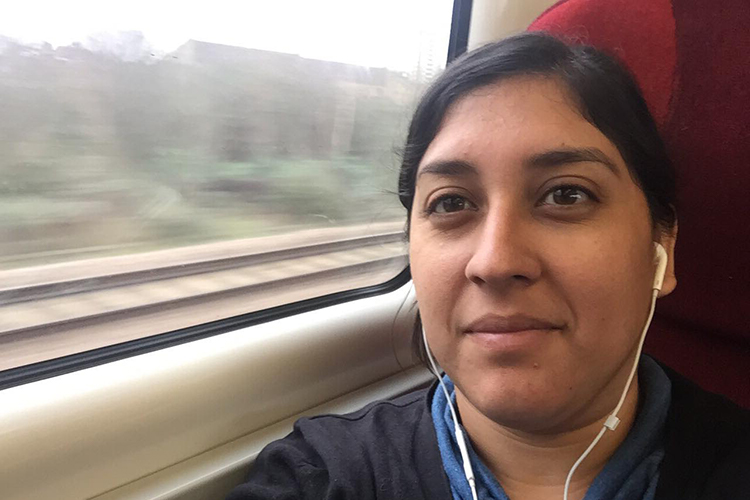
Ana Maria Sapountzi, PhD student
Thesis
Making Meaning of Laurence Olivier: Reading Queer Sensibilities in his Hollywood Canon, 1939-1960.
How would you describe the project?
My research identifies the disruptive trajectory present in British actor Laurence Olivier’s major Hollywood work from 1939-1960, to argue how his style of performance fundamentally challenged ideas of gender and sexual normalcy during Hollywood’s classic period.
What attracted you to St Andrews?
As a graduate of the Department of Film Studies’ MLitt programme in 2012, I felt confident that the department would be an excellent, supportive place to investigate my doctoral research as well as hone my professional skills.
How has the department helped you with your research or to develop your skills and knowledge?
Beyond the tremendous support and guidance on my doctoral work, the department has also offered the opportunity to work as a Teaching Assistant for its first and second-year undergraduate courses, to serve as postgraduate Representative for the department, and Co-Editor-in-Chief for Frames Cinema Journal (the Film Studies PGR-run online journal). I have also had the chance to organise the department’s annual PG conference in 2018 and lead a PGR Thesis Writing Boot Camp. Each position and activity has helped my professional development, working with, and learning from, my fellow students and staff.
What do you hope to do after the PhD?
My long-term ambition is to be a Professor in Film and Gender Studies. On completing the PhD, I will look to continue with teaching and towards a post-doctoral position, which would allow me to pursue new, emerging research projects that I’m currently developing.
What piece of advice would you give to someone thinking about doing a PhD in Film Studies?
Honour the professional and personal relationships you build. Make the most of all the opportunities that the programme, department, and the university offer and afford yourself time away from work to restore your energy and creativity.
